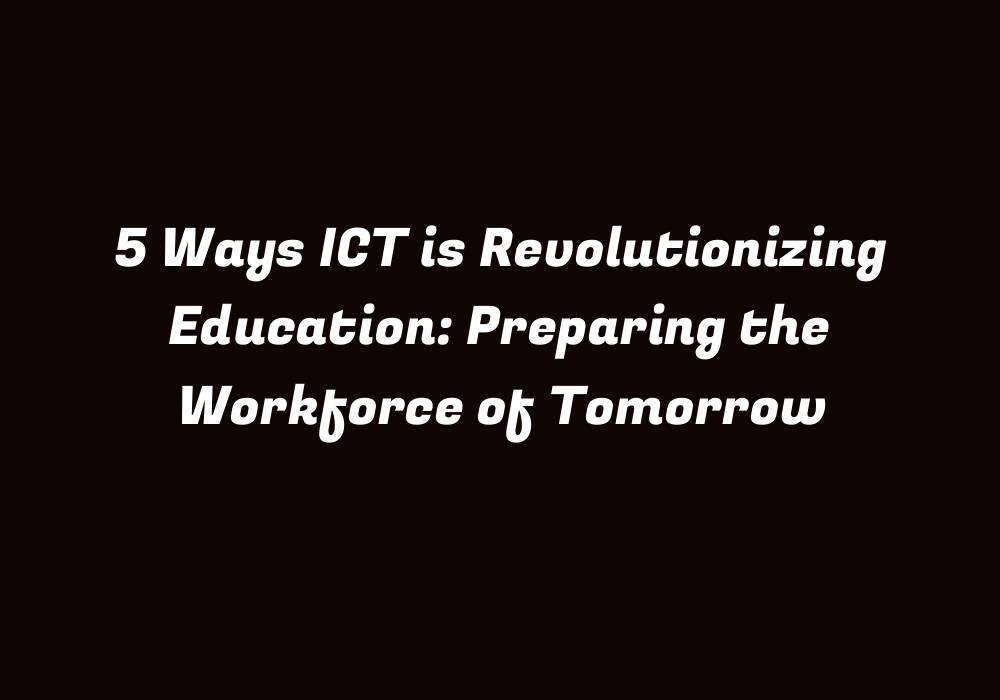5 Ways ICT is Revolutionizing Education: Preparing the Workforce of Tomorrow
In today’s rapidly evolving world, information and communication technologies (ICT) have significantly influenced various aspects of our daily lives. The education sector has not been left untouched by this digital transformation. In fact, ICT is revolutionizing education in unprecedented ways to ensure that the workforce of tomorrow is well-prepared for an increasingly dynamic job market. Here are five key ways through which ICT is transforming the education landscape:
1. Enhancing Accessibility and Flexibility
One major advantage of ICT in education is that it increases accessibility by allowing students to learn beyond geographical boundaries. Online learning platforms like MOOCs (Massive Open Online Courses) have enabled individuals from all around the world to acquire knowledge without limitations. This flexibility also contributes to a more inclusive and diverse student body, leading to an enriched learning environment.
2. Customized Learning Experiences
Teachers and educators are embracing ICT tools like adaptive learning platforms that provide personalized content for each learner based on their abilities, interests, and learning pace. This approach helps students to excel at their own level while maintaining a sense of competition, ensuring no one is left behind. Additionally, these customized experiences cater to the diverse needs of learners with different backgrounds and learning preferences.
3. Boosting Collaboration and Networking
ICT tools like social media, video conferencing platforms, and online communities facilitate collaboration and networking opportunities for students from various institutions to connect, share ideas, and work on joint projects. This global interconnectedness promotes learning beyond the classroom walls, allowing students to learn from experts, peers, and resources available across the world. Such collaborative experiences also improve problem-solving skills and foster a sense of belonging among learners.
4. Enabling Remote Education and Continuous Learning
During times of crisis like pandemics or natural disasters, ICT tools have become crucial in maintaining the continuity of education. With remote learning options, students can continue their studies from any location while adhering to social distancing norms. This flexibility provides learners with the ability to balance personal and professional commitments while acquiring knowledge. Moreover, continuous learning resources like online courses and webinars allow individuals to update their skills throughout their careers.
5. Embracing Innovation and Creativity
ICT tools have revolutionized the way students create and express themselves through various digital mediums. Interactive whiteboards, 3D modeling software, and design applications enable educators to incorporate hands-on activities into classroom teaching. These technologies foster creativity and innovation while improving students’ critical thinking and problem-solving abilities.
In conclusion, ICT has significantly impacted the education sector by enhancing accessibility, providing customized learning experiences, promoting collaboration and networking, enabling remote education during crises, and fostering innovation and creativity. By embracing these technological advancements, the education system is preparing the workforce of tomorrow to thrive in an ever-changing global landscape characterized by rapid advancements and constant transformation.
